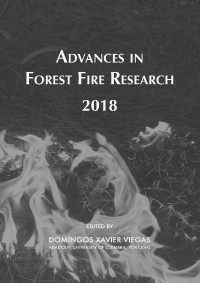Please use this identifier to cite or link to this item:
https://hdl.handle.net/10316.2/44531| Title: | The impact of climate change on fire weather of Daxing'anling | Authors: | Tian, Xiaorui Shu, Lifu Wang, Mingyu Zhao, Fengjun |
Keywords: | climate change;forest fire;fire season;Daxing'anling | Issue Date: | 2018 | Publisher: | Imprensa da Universidade de Coimbra | Journal: | http://hdl.handle.net/10316.2/44517 | Abstract: | There are amount of natural forests in Daxing'anling, and wildfires occurred in the region every year. Assessing the changes in fire weather in the future under multi-climate scenarios would contribute to our understanding of the influences of climate change for the region and provide a reference for applying adaptation measures for fire management. This study analysed the changes in fire weather indices and the fire season under four climate scenarios (RCP2.6, RCP4.5, RCP6.0, RCP8.5) for 2021-2050 using data from five global climate models together with observation data. The results showed that the analog data could project the average state of the climate for a given period but were not effective for simulating extreme weather conditions. Compared with the baseline period (1971-2000), the average temperature and annual precipitation were predicted to increase by 2.02℃ - 2.65 ℃ and 25.4 - 40.3 mm during 2021-2050, respectively. Multiple comparisons revealed that all of the indices would increase in 2021-2050 except for DC. The average FWI (fire weather index) was 4.53 at baseline, which would increase by 6.2%, 11.3%, 10.6%, and 11.2% under scenarios RCP2.6, RCP4.5, RCP6.0, and RCP8.5, respectively. SSR (seasonal severity rating) would increase by 5.5%, 16.2%, 15.1%, and 17.2% in 2021- 2050 under scenarios RCP2.6, RCP4.5, RCP6.0, and RCP8.5, respectively. The DMC (duff moisture code), ISI (initial spread index), BUI (build-up index), FWI and SSR were predicted to increase significantly under scenarios RCP 4.5, RCP 6.0, and RC P8.5. Furthermore, days with high or higher fire danger rating were predicted to prolong 3-6 days in 2021-2050. | URI: | https://hdl.handle.net/10316.2/44531 | ISBN: | 978-989-26-16-506 (PDF) | DOI: | 10.14195/978-989-26-16-506_14 | Rights: | open access |
| Appears in Collections: | Advances in forest fire research 2018 |
Files in This Item:
| File | Description | Size | Format | |
|---|---|---|---|---|
| the_impact_of_climate_change.pdf | 1.06 MB | Adobe PDF |  |
Items in DSpace are protected by copyright, with all rights reserved, unless otherwise indicated.
